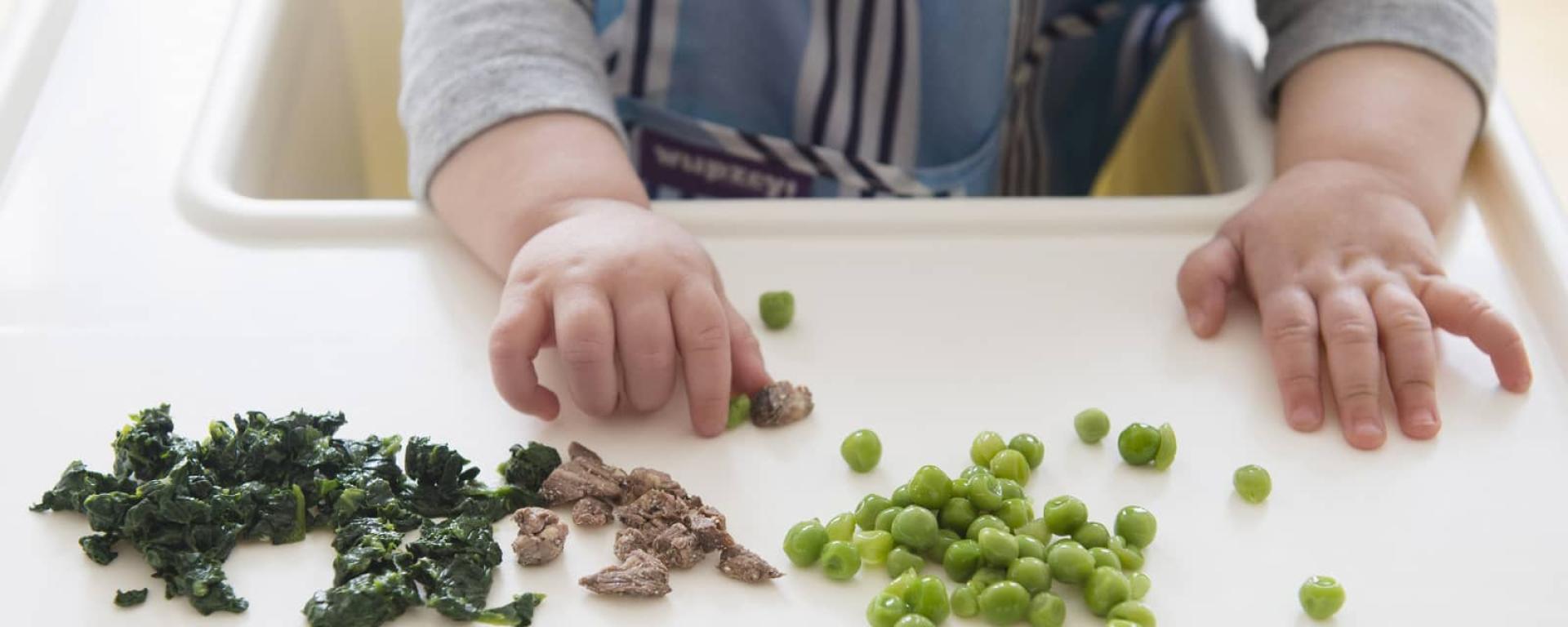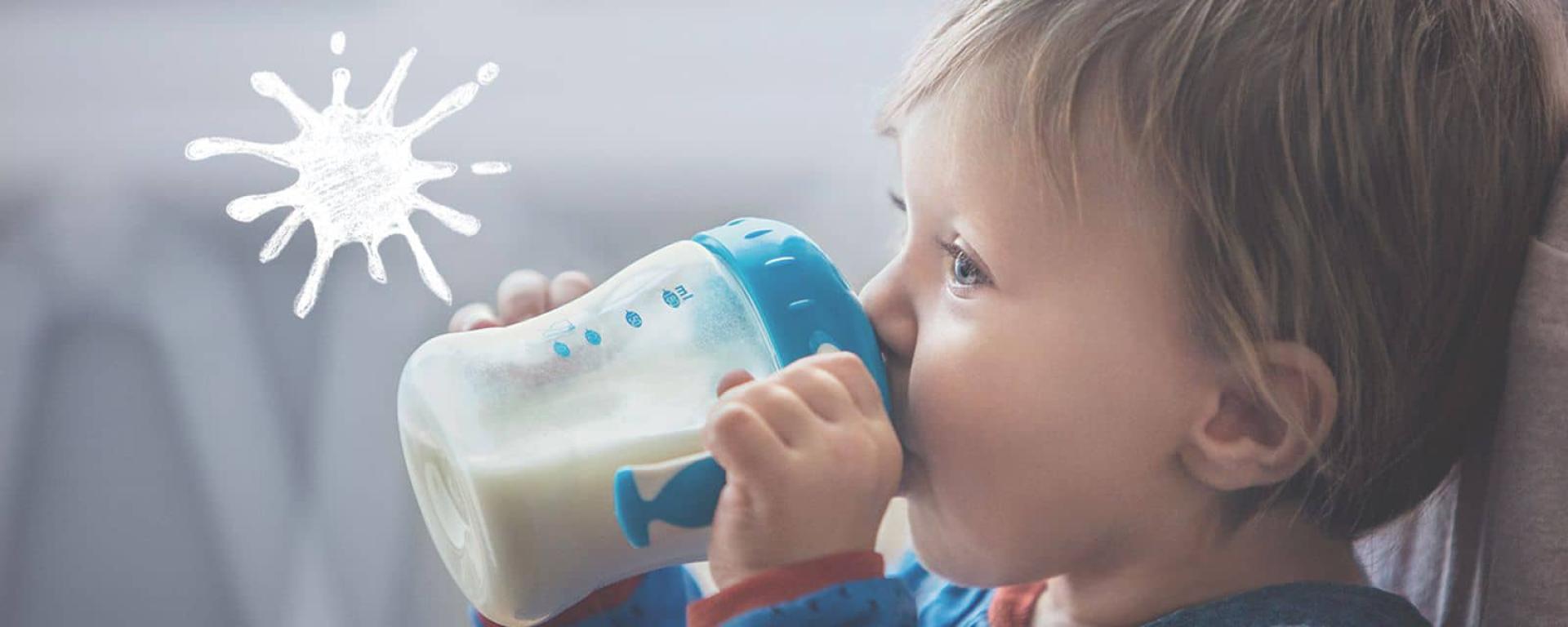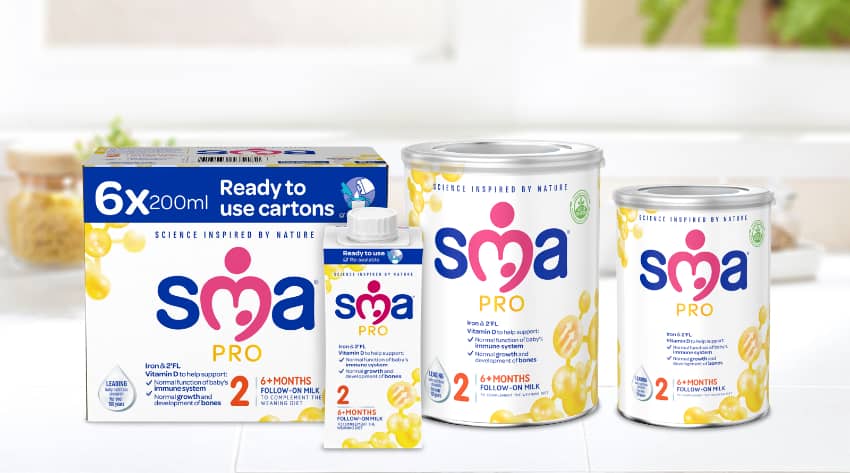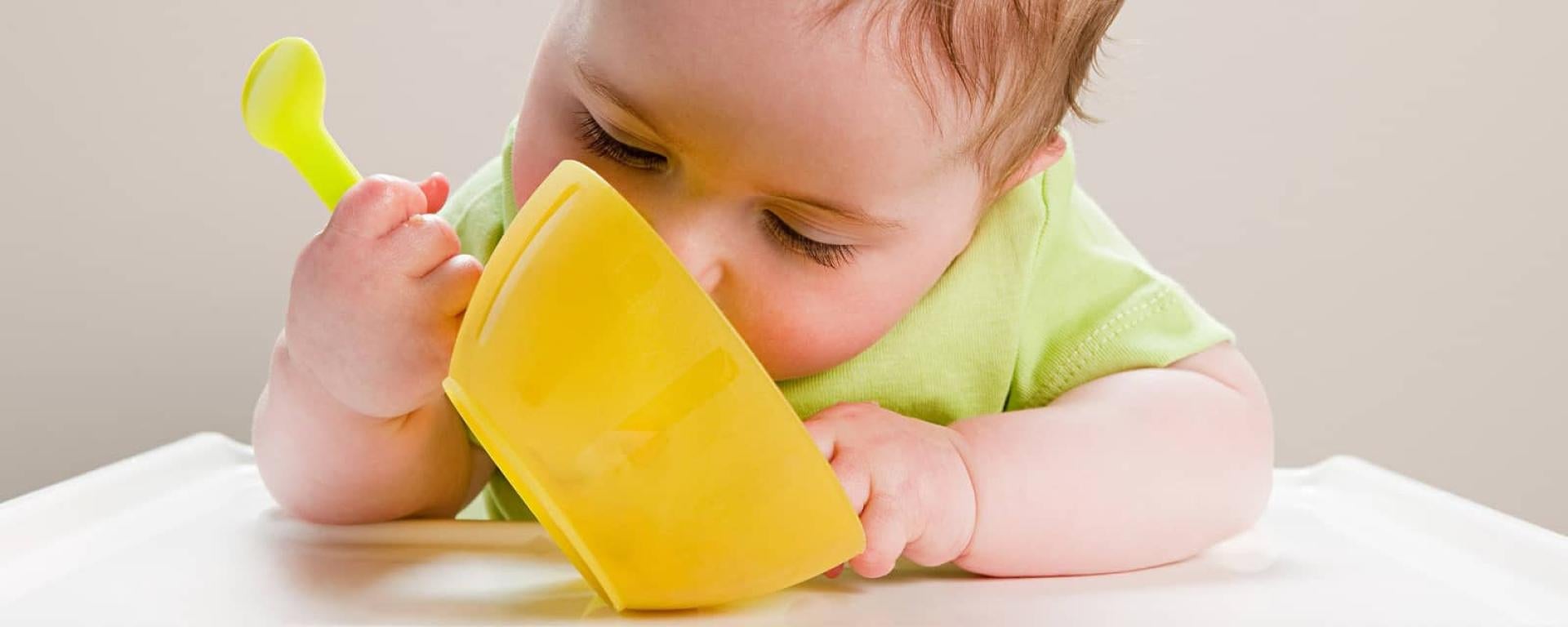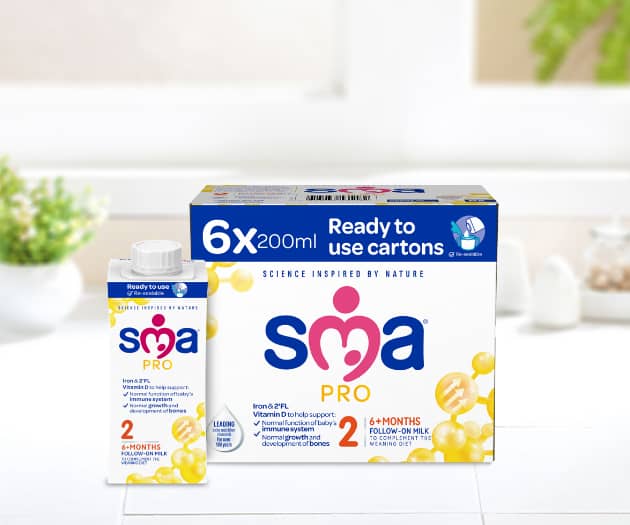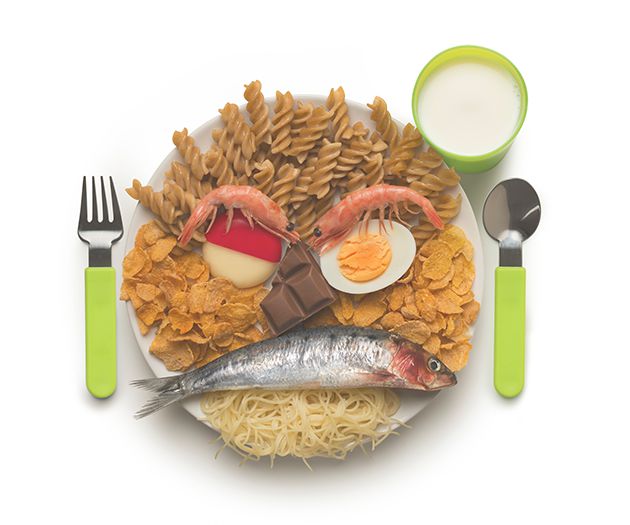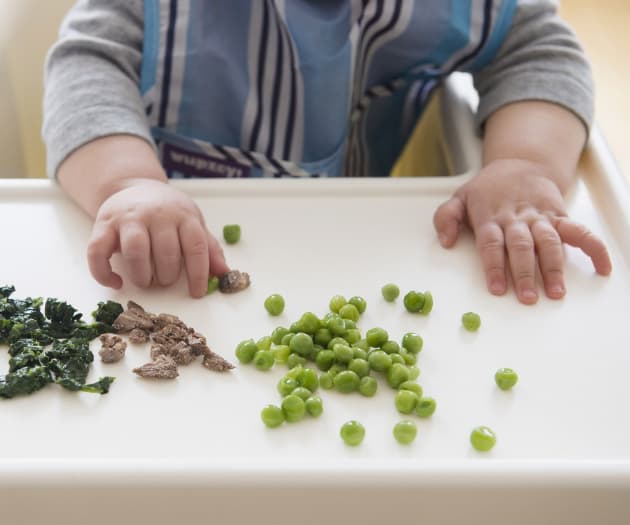At a glance
At six months your baby needs more than three times the iron that an adult does, in proportion to their body size
Iron is great brain fuel and supports normal cognitive development
Your baby’s natural iron stores start to deplete after six months
Around a third of babies in the UK aren’t getting enough iron in their diet
Your baby grows most rapidly in the first six months of their life and at the six-month mark, your baby’s natural iron stores start to deplete. When born, about 75% of your little one’s iron is in their blood and about 25% is stored. As your baby grows the iron in this store is used up. This happens because your baby doubles in size from birth to six months and the brain grows rapidly. Up until six months, baby will have been getting most of their nutrition through your breast milk or formula. After six months iron is crucial as part of their weaning diet.
What you need to know about iron
What is iron? And why is it so important?
The mineral iron is vital for your baby’s cognitive development. Perception, thought, memory, language and physical coordination are all evolving quickly in the first few months of life and need plenty of iron for support.
Iron in your baby’s weaning diet
Iron comes in two forms: from meat and fish, which is easily absorbed; and from plant foods, which is less easy to absorb. If you’re giving your child a vegetarian or vegan diet, they can get iron from many other foods like beans and pulses or milk and cereals fortified with iron. Lots of weaning foods are fortified with iron for this reason, check out the packaging for details.
A third of UK babies aren’t getting enough iron
The risk of babies not getting enough iron is most crucial between six and twelve months. Their iron stores are starting to run out, indeed research shows that almost one third of babies in this age range don’t meet the recommended iron intake.* According to the HSE if babies don’t get enough iron between six and twelve months they could be at risk of iron deficiency anaemia. So it’s really important to keep checking how much iron is in your little one’s diet.
Iron-rich foods for baby’s diet
So, what are the best sources of iron for babies?
- Red meat like lamb and beef
- Dark poultry meat including turkey
- Fortified breakfast cereals (check the back of packets)
- Some breads are fortified with iron (check the label to be sure)
- Eggs
- Pulses like beans, lentils and peas
- Dark leafy greens like spinach or kale
- Tofu
Vitamin C and iron. The dream team
Vitamin C is known to help with iron absorption so you can include it with iron-rich foods in your baby’s weaning diet, especially if they’re not eating meat. Here are some good sources of vitamin C:
- Oranges
- Red and green peppers
- Strawberries
- Blackcurrants
- Tomatoes
- Broccoli
- Brussel sprouts
- Potatoes
*Dietary surveys have been conducted to assess the quality of infants and young children's diets. In 2011 over 2000 infants and young children aged 4-18 months in the UK were surveyed and parents asked to record all foods and drinks given over a four-day period.
A bit about SMA® Follow-on Milk
SMA® Follow-on Milk is tailored for babies from 6 months as part of a varied weaning diet. Follow-on milks contribute a large proportion of the iron in the diets of babies from 6-12 months***. A daily intake of 500 ml of SMA® Follow-on Milk fortified with iron provides 56% of daily iron requirements**.
We have been leading research in baby nutrition for over 100 years and have produced SMA® Follow-on Milk, expertly developed with nature in mind to help support babies’ unique nutritional needs. SMA® Follow-on Milk is enriched with iron to help support normal cognitive development in baby’s brain. Inspired by our research into natures wonderful nutrients SMA® Follow-on Milk now also contains 2’FL which is structurally identical to the most abundant oligosaccharide found in breast milk.
Development
Enriched with iron to help support normal cognitive development in baby’s brain.
Immunity
Contains vitamins A, C & D to help support the normal function of baby’s immune system.
Growth
Contains vitamin D and calcium to support the normal growth and development of bones. Omega 3 & 6† and iodine to help support normal growth.
***Dietary surveys have been conducted to assess the quality of infants and young children's diets. In 2011 over 2000 infants and young children aged 4-18 months in the UK were surveyed and parents asked to record all foods and drinks given over a 4 day period.
**based on 500 ml SMA® Follow-on Milk powder formulation per day.
†The beneficial effect of essential fatty acids is obtained with a daily intake of 10 g of Linoleic acid and 2 g of a-linolenic acid.
IMPORTANT NOTICE:
We believe that breastfeeding is the ideal nutritional start for babies and we fully support the World Health Organization’s recommendation of exclusive breastfeeding for the first six months of life followed by the introduction of adequate nutritious complementary foods along with continued breastfeeding up to two years of age. We also recognise that breastfeeding is not always an option for parents. We recommend that you speak to your healthcare professional about how to feed your baby and seek advice on when to introduce complementary feeding. If you choose not to breastfeed, please remember that such a decision can be difficult to reverse and has social and financial implications. Introducing partial bottle-feeding will reduce the supply of breast milk. SMA® Follow-on Milk is only suitable for babies over 6 months as part of a mixed diet. It should not be used as a substitute for breast milk during the first 6 months. The decision to start weaning or to use this product before 6 months, should be made only on the advice of a doctor, midwife, health visitor, public health nurse, dietitian or pharmacist, based on baby’s individual needs.




